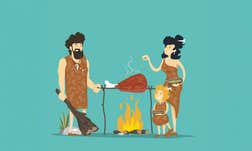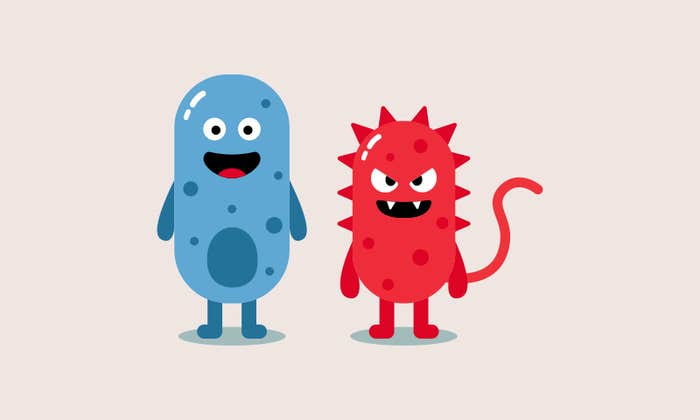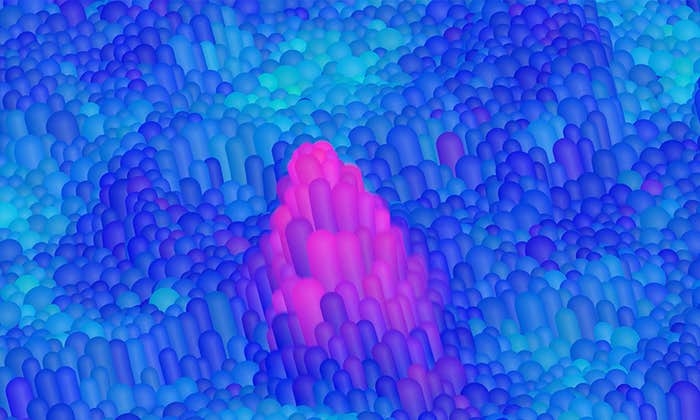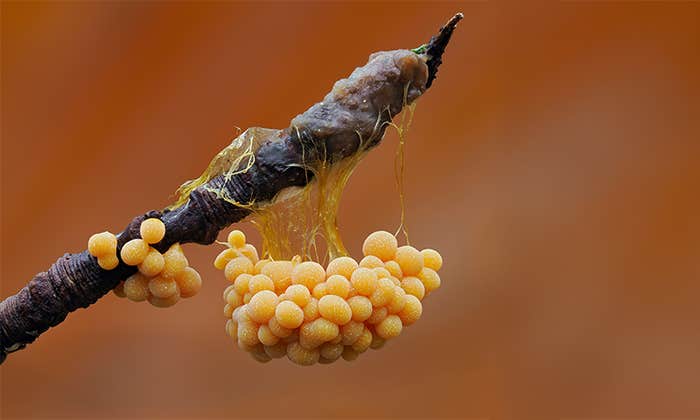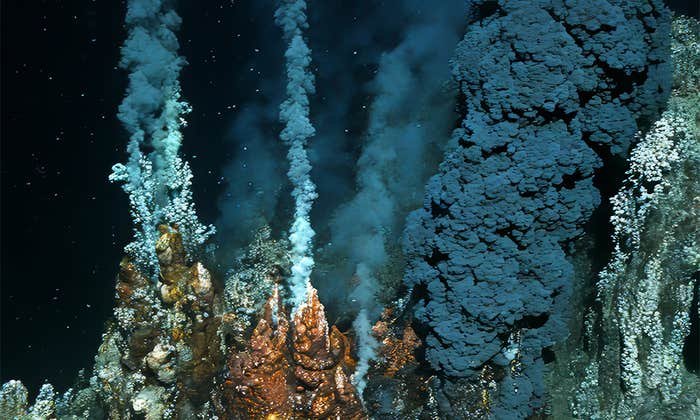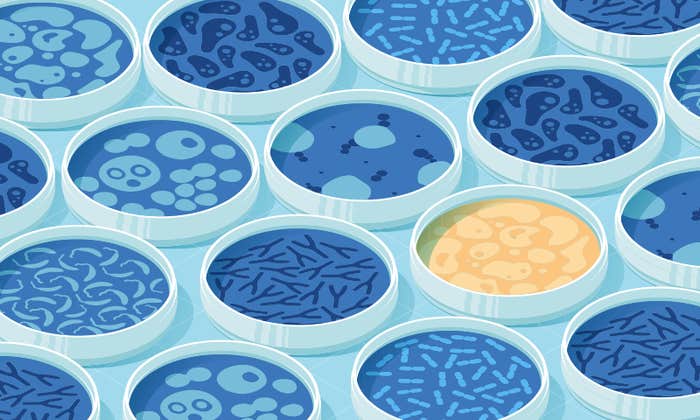I’ve spent years adventuring in exotic parts of the world seeking out wildlife—weeks in tents in remote wildernesses, nights uncomfortably holed up in hides in rainforests. I’ve drifted through mangroves on boats, even lodged in a tree-canopy camp. And yet, I know that the best place to find rare and endangered animals is a bushmeat market.
The first time I saw a pangolin, it was chopped up on a table for sale in a market in Yogyakarta in Java, Indonesia, about 20 years ago. That was the last time, too—the world’s only scaly mammal is now the most illegally traded wild animal on the planet, and so scarce that it’s almost impossible for even the most dedicated zoologist to see them in the wild. Today, pangolin products are difficult to find in local bushmeat markets, too, because they’ve become so high value they’re increasingly traded onward to markets in the Asian cities where people can afford to buy luxuries.
Wild animal and plant products are being extracted from intact ecosystems at an unprecedented rate. These products end up as boardroom tables in Wall Street firms; displays in private zoos in Europe; and touted as fertility boosters and youth serums in the “alternative pharmaceuticals” industry. But as we plunder these wildlands for the resources we value, we disrupt established ecological niches, including those of pathogen and host. Viruses and bacteria that evolved life cycles in a wild animal get opportunistic exposure to humans, for instance.
It’s important to understand that this COVID-19 pandemic is a human creation. We made this problem precisely because of the type of species we are, and the planet we have created.
Just as one infectious agent can spread throughout the network from a single point, so too can one solution.
It is no surprise that communities adjacent to exploited rainforests, with their wild animal markets, are the first affected by novel diseases, such as Ebola, HIV, Marburg, SARS, and, most recently, COVID-19. Most human infectious diseases have a zoonotic origin, even if most of these pathogens made the transfer from animals to humans many generations ago. But the emergence of new human pathogens seems to be speeding up,1 and 75 percent of the new diseases affecting us in the past 30 years have animal origins.2 As we change our planetary environment, introduce people into places formerly occupied by wild animals, and connect formerly separated natural and human elements, pandemics become inevitable. A 2007 study of the 2002-2003 SARS outbreak warned that “the presence of a large reservoir of Sars-CoV-like viruses in horseshoe bats, together with the culture of eating exotic mammals in southern China, is a timebomb.”3
Humans do not operate within their ecosystems in the same way as other species, even other top-level predators. We don’t have an ecological niche, but rather we dominate and alter the local—and now, global—ecosystem cumulatively to suit our lifestyles and improve our survival, including though habitat loss, introduction of invasive species, climate change, industrial-scale hunting, burning, planting, infrastructure replacement, and countless other modifications. It means that while other species do not naturally cause extinctions (except in rare circumstances, such as on islands), humans currently threaten 1 million of the world’s 8 million species.
We also don’t interact with each other in the same way as other species. We operate in large networks of unrelated individuals, treating each other as other species treat family. Just as genetic information is passed down through generations of families, humans also pass a whole suite of cultural information through societies and down the generations, including knowledge, behaviors, tools, languages, and values. Through cumulative cultural evolution our societies of cooperating, interconnected individuals work collectively, enjoying great efficiencies in the way they harvest energy and resources.
Over tens of thousands of years, this has helped make us the most successful big species. Humans now operate as a globalized network of over 7.5 billion hyperconnected individuals: We have effectively become a superorganism in our interactions with the natural world. We now dominate the planet and have pushed it into the Anthropocene, the Age of Humans.4 No part of Earth is untouched by human activity.
Earth’s biosphere operates systemically: The cycling of chemicals (such as carbon, oxygen, and water), of energy, and of biology all interact to produce a living synergy. We humans are part of this. Our bodies and all the resources we use and move are part of this interaction, from the air we breathe to the protein we consume, to the carbon dioxide we emit.
But on top of this, human culture operates its own system. The numbers of us, how we are networked, our position in this network of humanity as individuals and societies, all produce their own effects. This is important because human interactions with their ecosystems are culturally driven. We attach subjective values to things of no or little survival value, such as gold, mahogany, and diamonds. And we spread these invented values through our networks, just as we spread our resources, genes, and germs.
We must be mindful of the greater systems that we are all a part of.
Take pangolins. They are hunted mainly for their scales, which are extremely valuable as a luxury food item and are powdered into “medicines” for a variety of conditions, including treatments targeted at lactating women and infertile men. Pangolin scales are made of keratin, the same protein found in skin, hair, and fingernails. Keratin is no more nutritious or useful in our diets than other forms of protein, and there is no evidence that it is an effective treatment for any ailment. And, even if it were, there is no logical reason why you would get the keratin from pangolin scales rather than, say, cow hooves. The high value assigned to pangolin products exemplifies how swathes of cultural information shape people and their actions.
No one individual decided bushmeat was valuable; no one individual devised this globally networked human system; no one individual created this infection.5 This situation arose from a human cultural system that is so successful that a social need in one community can be met quickly and efficiently by extracting natural products from a distant forest. The cumulative and synergic side effects of this extraordinary success turn out to be globally devastated ecosystems, and a pandemic virus that has decimated human communities and produced a global economic meltdown with the potential to hit even more human lives in the months to come. It can seem hopeless.
But, just as one infectious agent can spread throughout the network from a single point, so too can one solution. Our superorganism is made of so many differently connected networks that can each be tweaked. And some individuals are positioned with greater agency over the whole.
Already, the networks are producing potential tests, treatments, and vaccines, as coordinated large-scale patient sampling is pored over by expert minds across the globe—in other words, our collective brain is taking data from the superorganism’s body. Meanwhile our culturally inherited social norms are being tweaked to produce networks optimized for physical distance yet social connectedness, the better to thwart pathogen spread. Some regions of the superorganism, such as East Asia, have value systems that include a more collectivist mindset, making them better able to respond to the societal changes required; by contrast, the individualist mindset typically found in United States populations makes it far harder to coordinate a societal response.
We must also tweak our superorganism’s interactions with our environment. We are a part of the biosphere and as we blunder into ecosystems we must be mindful of the greater systems that we are all a part of. A tweak to one part of the network can have far reaching consequences (good or bad) for us all.
Gaia Vince discusses these ideas and more in her book Transcendence: How Humans Evolved Through Fire, Language, Beauty, and Time (Basic Books, 2020). Follow her on Twitter @WanderingGaia.
References
1. Smith, K.F., et al. Global rise in human infectious disease outbreaks. Journal of the Royal Society Interface 11, 20140950 (2014).
2. Taylor, L.H., Latham, S.M., & Woolhouse, M.E. Risk factors for human disease emergence. Philosophical Transactions of the Royal Society B 356, 983-989 (2001).
3. Cheung, V.C.C., Lau, S.K.P., Woo, P.C.Y., & Yuen, K.Y. Severe acute respiratory syndrome coronavirus as an agent of emerging and reemerging infection. Clinical Microbiology Reviews 20, 660-694 (2007).
4. Vince, G. Gaia Vince: Humans have caused untold damage to the planet. The Guardian (2015).
5. Lam, T.T.-Y., et al. Identifying SARS-CoV-2 related coronaviruses in Malayan pangolins. Nature (2020). Retrieved from doi:10.1038/s41586-020-2169-0
Lead image: konyk.y / Shutterstock



















